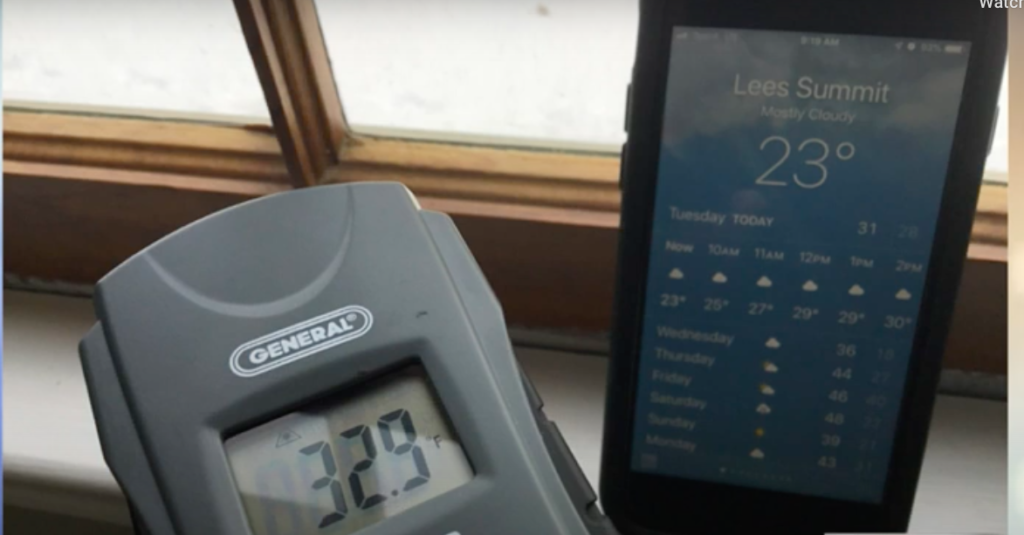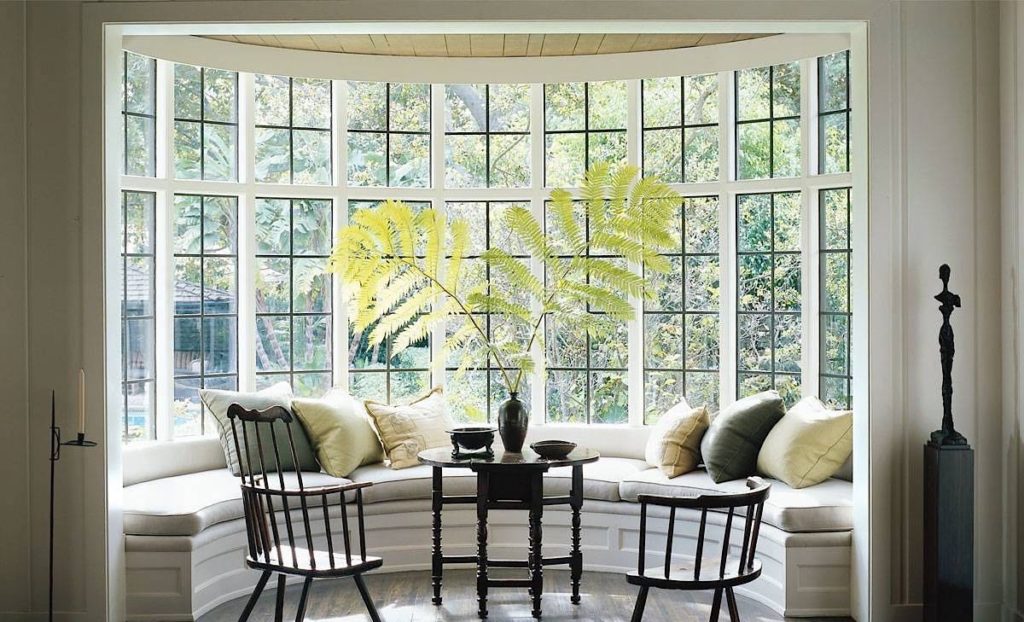Windows Insulated with the Right Gas Make All the Difference
Windows filled with air, argon or krypton. What’s the difference?
This detail may seem quite insignificant. However, it’s amazing how the most inconspicuous detail can be one of the most important. The dash of sugar in grandma’s secret pasta recipe, the thread count in sheets, or the direction a home is facing.
Similarly, what determines a quality window isn’t just the material we can see: type of glass, type of frame, etc. While these things are important there’s an invisible part that is easily forgotten, yet contributes greatly to the efficiency of the window and the temperature control of your home: the gas between the window panes.
How Gas Interacts with the Window Panes
It is easy to think that the glass itself is what insulates a window. However, it is the gas that’s in-between those pieces of glass that have the insulating power.
Perhaps you’ve noticed in our previous blogs that a single pane window (one sheet of glass in the window frame) performed poorly when tested. On a chilly 23ºF day in Kansas City, the inside glass measured 32.9ºF. The glass itself only shielded the homeowners from 9ºF. The glass basically acted as a windshield.

A single pane window without the ability to be insulated with gas leaves a home defenseless to outside temperatures.
If you think about it, this makes sense. Think back to the last time you filled a glass with icy cold water. There’s a quick temperature transfer of the cold water temperature to the outside of the glass itself, followed by condensation. This illustrates how glass transfers cold. But what about heat?
Have you ever tried to drink coffee or tea out of a glass? As the glass fills with a boiling hot beverage, the outside of the glass becomes too hot to touch, forcing you to wait until the beverage cools before you can even take a sip.
Clearly, glass is an excellent conductor of temperature. Which is why glass alone makes a poor insulator.
Innovation has found its way around this problem.
Have you ever tried using a glass coffee cup – one that has double walls with an air pocket inside? Suddenly, no matter how hot the liquid, you can still touch the glass itself – barely any temperature change. This is how double and triple paned windows work. It’s the air or gas between the panes that prevent the temperature exchange.

The insulating gas between the two walls of glass of the tea cup prevent temperature transfer.
The denser the gas between the glass, the better the insulation.
Let’s explore the 3 most common types of insulating gas: air, argon and krypton. Then, we’ll determine which one will keep your home the most comfortable.
What is the Difference between Air, Argon & Krypton Gas?
Air as an Insulating Gas
The air we breath is not a very dense gas.
We’ll illustrate the denseness of air this way:
Imagine the space between the window panes is a swimming pool. You are the temperature molecules wanting to cross from outside to inside the house. All you have to do is get from one side to the other.
A window filled with air will be like walking through an empty swimming pool – its just filled with air, there’s no resistance – it requires minimal energy.
Window panes filled with air offer little resistance in temperature exchange.

Just as an air-filled swimming pool is useless, air-filled windows provide little in insulating power.
Argon, a Better Insulating Gas
Argon is a denser gas than air.
Think back to the swimming pool, now it is filled with water, this is like windows insulated with argon gas. Resistance to cross the pool has greatly increased. More time and energy is required to cross, but it is possible.
When window panes are filled with argon gas, the density of the gas slows the temperature exchange down and therefore provides much greater insulation than air.
Krypton, the Superior Insulating Gas
Krypton is an extremely dense gas.
Window panes filled with Krypton gas would be like trying to cross a swimming pool filled with peanut butter. I don’t know about you, but this would bring me to a complete halt.
Windows filled with dense Krypton gas makes any temperature exchange between the outside and inside air nearly impossible.
That is why in our window challenge the triple pane window filled with Krypton gas tested nearly the same temperature as the insulated wall.
Which Insulating Gas Provides the Most Comfortable Home – Air, Argon or Krypton?
Krypton is the clear leader. With Krypton gas in a triple pane window you could have windows for walls without worrying about energy efficiency.
Ready for Argon or Krypton filled windows? Send us an estimate request and our window replacement experts will be happy to help you find the perfect window for your home.






